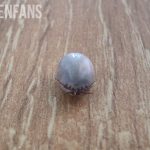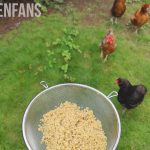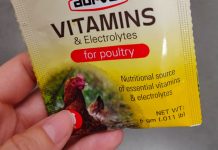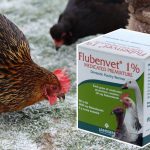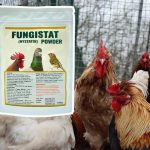Can Chickens Eat Asparagus? – Egg Taste Change vs Health Benefits
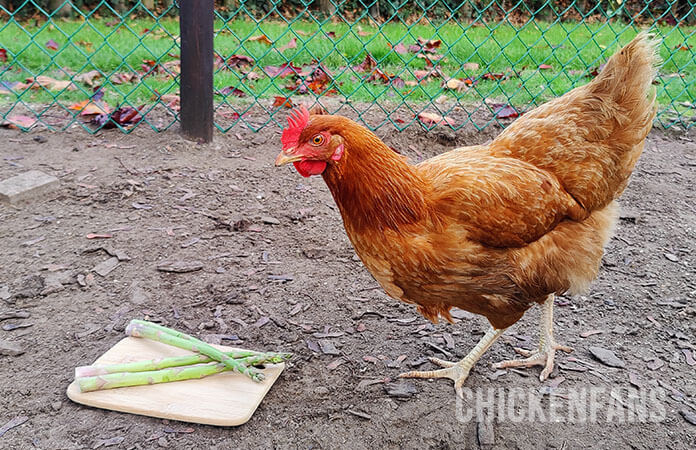
Asparagus is popular in many diets because it’s low in calories and rich in nutrients. However, it’s also known to make your pee smell. Asparagus is healthy for chickens but can make their eggs taste poorly.
- Can chickens eat asparagus?
- Nutritional value of asparagus for chickens
- Health Benefits of Asparagus for Chickens
- Effect of Asparagus on Egg Taste
- Effect of Asparagus on Chicken Growth Performance
- When not to feed your chickens Asparagus?
Can Chickens Eat Asparagus?
Chickens can eat raw and cooked asparagus in abundance: it’s a low-calorie food source of antioxidants, vitamins, minerals, and micronutrients. They can eat as much as they want; the only downside is that the egg taste can worsen.
Nutritional Value of Asparagus for Chickens
Asparagus is very low in calories, high in fibers, and comes with several healthy nutrients. A spear of asparagus is a healthy source of antioxidants, vitamins, flavonoids, and polyphenols.
| 1 large spear (20g) | Amount | % DV Laying Hen |
|---|---|---|
| Calories | 4 kcal | ~1,3 % |
| Water | 18,6 g | – |
| Protein | 0,44 g | ~2,4 % |
| Carbs | 0,776 g | – |
| Fiber | 0,42 g | – |
| Sugar | 0,376 g | ~1,3% |
| Vitamin A | 151 IU | ~5% |
| Vitamin C | 1,12 mg | ~1,1% |
| Vitamin B6 | 18 µg | ~0,6% |
| Vitamin E | 0,226 g | ~1,7% |
| Vitamin K | 8,32 µg | ~0,3% |
| Potassium | 40 mg | – |
| Calcium | 4,8 mg | ~ 0,1% |
A single large spear of asparagus (20g) is only 4 calories but already provides 5% of the recommended daily intake of vitamin A for chickens and almost 2% of vitamin E. It also contains vitamins C, E, K, and B6, as well as folate, iron, potassium, copper, traces of calcium, and even some protein.
- Vitamin A is essential for several metabolic processes and helps chickens see in dim light and shady environments. It’s vital for fertility, the immune system, and proper growth in chickens.
- Vitamin C is an antioxidant, vital for tissue growth and blood vessels, and involved in many body functions and the proper functioning of the immune system.
- Vitamin E is essential for the immune system, nervous system, muscle development, and reproductive system of egg-laying hens
- Vitamin K is vital for metabolism, blood clotting, egg laying, and bone health. Asparagus is a very good source of vitamin K for humans, but egg-laying hens have higher demands for vitamin k.
Asparagus also contains several minerals that chickens need for their bones, muscles, heart, and brain to work properly.
Health Benefits of Asparagus for Chickens
Asparagus comes with several health benefits for egg-laying hens and broilers:
- Boosts the immune system: several antioxidants, glutathione, vitamin E, and vitamin C, reduce oxidative stress and inflammation that are linked to several diseases
- Improves Digestion: the high fiber content in asparagus helps bowel movement and bacteria growth in the chicken’s guts
- Improves heart and blood health: several flavonoids like quercetin and kaempferol regulate blood pressure and have anti-inflammatory effects
- May have anticancer effects: flavonoids like kaempferol have proven anticancer effects in animal studies
- Reduces risk of chronic diseases: antioxidants are known to reduce the risk of several chronic diseases
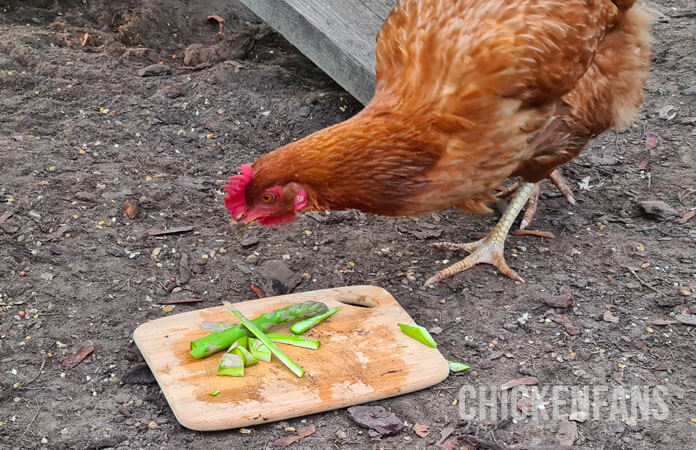
Effect of Asparagus on Egg Taste
Many people associate asparagus with asparagus pee. The unpleasant scent results from the digestion of asparagusic acid, exclusively found in asparagus. Asparagusic acid contains sulfur compounds, and digestion produces a sulfurous odor, which smells like rotten eggs.
Many chicken keepers report that their eggs taste bad after feeding the flock asparagus. Egg whites naturally contain sulfur, which is why hard-boiled eggs turn green from overcooking. Adding extra asparagus sulfurs to the mix might not produce the tastiest egg you have ever had.
Some people claim they can’t taste any difference. But many people can’t smell the asparagus odor in their pee either, as they are missing a receptor gene for the odor. It’s also possible that some chickens cannot produce enough sulfur compounds to generate the asparagus aroma.
Effect of Asparagus on Chicken Growth Performance
Asparagus comes with several vitamins, minerals, antioxidants, and micronutrients that aid in chicken growth.
There has been some research on Asparagus supplementation in broiler diets. However, that research is investigating the effects of Asparagus Racemosus or Satavar. It’s an asparagus variant common in India and Australia that’s used in traditional Indian medicine.

Several studies and publications present evidence that supplying 1% of Asparagus Racemosus to the chicken’s diet improves health and growth.
When not to feed your chickens Asparagus?
Do not feed your chickens asparagus if:
- there is mold on the asparagus; chickens can never eat mold as it can cause several diseases
- it’s mixed with other table scraps that chickens can not eat, like onions
- there are pesticides on the asparagus – always make sure the food is properly washed
Other Reads
Some other similar articles:
- Can chickens eat tomatoes – here we discuss the toxicity of tomatine
- Can chickens eat cucumber – all the health benefits of cucumber for chickens
- Can chickens eat and taste spicy food – here, we discuss the taste of chickens
- Can chickens eat onions – the risks of feeding onions and their use as poultry supplements
Some articles we mentioned here:
- The chicken digestive system – how chickens digest their food
- Chicken Egg Anatomy – the anatomy of the chicken egg
If you want to learn more about chicken feed, please consult our ‘Chicken Food Page‘ to go and see every specific food article we address, including all articles on what chickens can and can not eat. Or go to our listicle food summary on ‘The Classroom‘.


